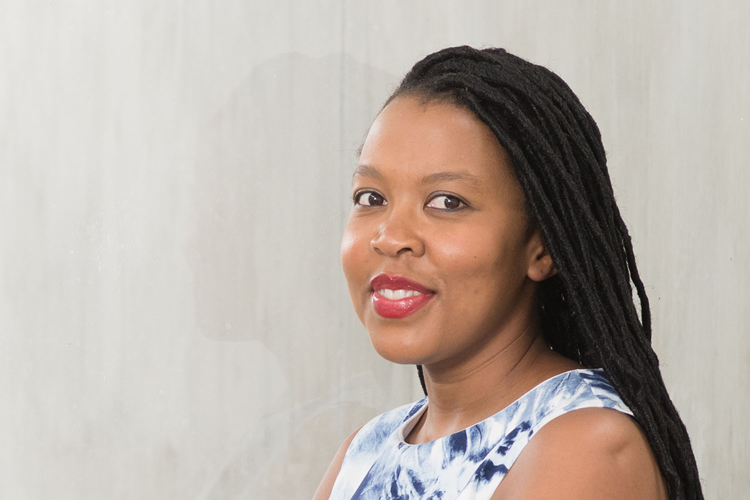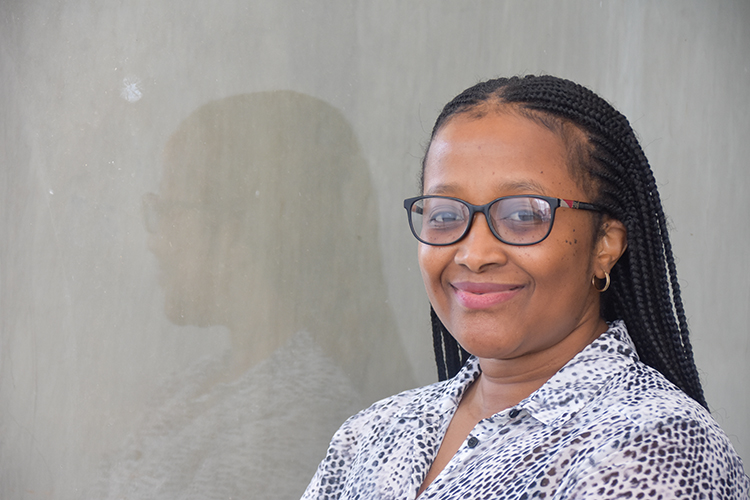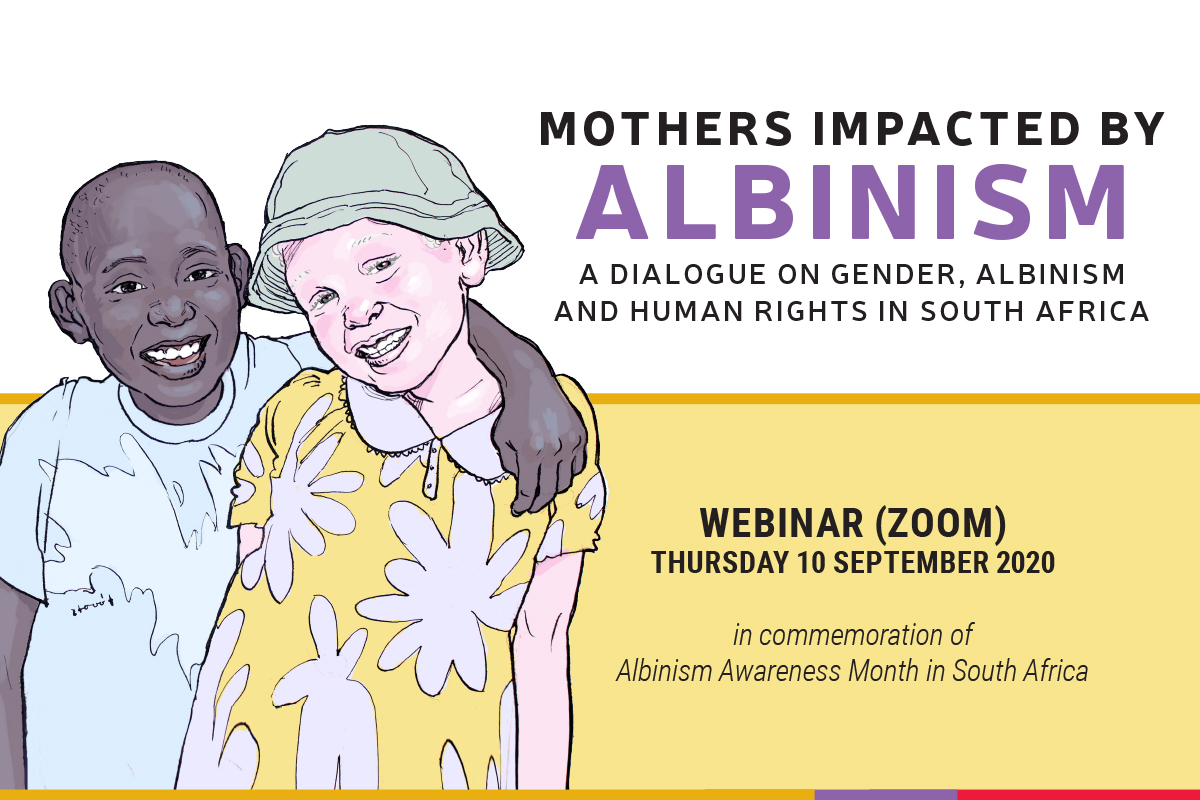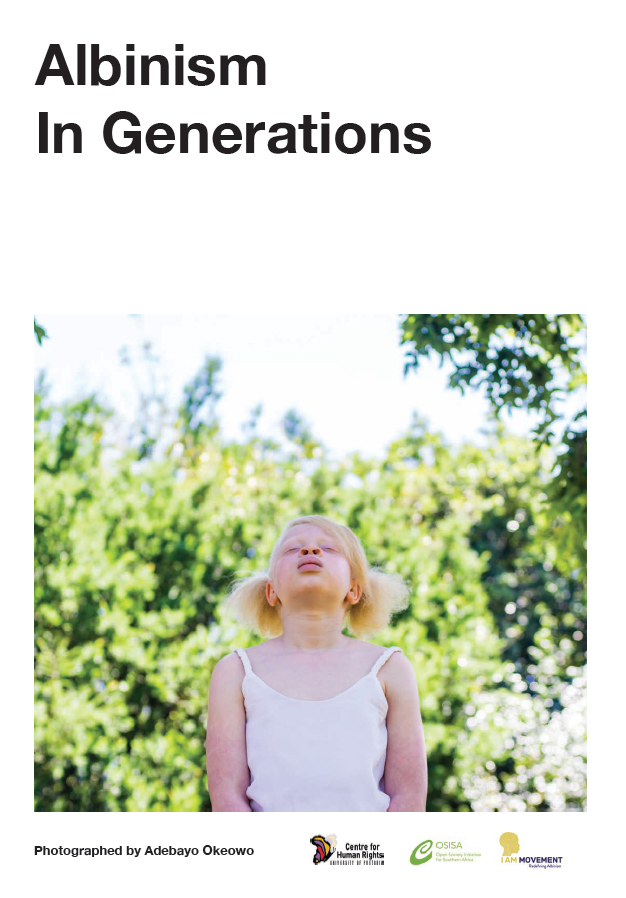The Disability Rights Unit at the Centre for Human Rights, Faculty of Law, University of Pretoria, cordially invites you to a webinar on mothers impacted by albinism. The webinar, which is a dialogue on gender, albinism and human rights in South Africa is held in commemoration of Albinism Awareness Month.
Webinar
Thursday 10 September 2020
Webinar (Zoom)
09:00 GMT / 10:00 WAT / 11:00 SAST / 12:00 EAT
Theme: Mothers impacted by albinism: A dialogue on gender, albinism and human rights in South Africa
Panellists
- Moderator: Innocentia Mgijma-Konopi
Centre for Human Rights, University of Pretoria
Setting the global context
Reflecting on the UN Independent expert on albinism’s report on women and children with albinism - Dr Sheryl Reimer-Kirkham, RN PhD
Dean and Professor School of Nursing, Member College of New Scholars, Royal Society of Canada
Speaking on the research project: Mothering, albinism, and human rights in Africa: Mapping patterns of resilience at the juncture of gender, colourism, and religion - Professor Jennifer Kromberg
Associate Professor, Division of Human Genetics, Wits; National Health Laboratory Service
Psychological impact of having a child with albinism - Video presentation: Albinism in Generations photo book
Round Table Discussion
- Lorraine Tshuma
Mother without albinism, child with albinism - Busisiwe Mahlaba
Mother without albinism, two children with albinism - Thembisile Madlala (Albinism Society KZN)
Mother with albinism, child without - Gugulethu Shandu
Mother with albinism and a child with albinism
The webinar is inspired by the Mothering & Albinism: Mapping patterns of resilience at the juncture of gender, colourism, religion, and human rights research project that Centre for Human Rights is part of.
For more information go to www.motheringandalbinism.com
Background
Mothers impacted by albinism in South Africa face extraordinary circumstances, both as mothers of children with albinism and mothers who themselves have albinism. These mothers are particularly vulnerable to human rights violations as a result of social constructions of gender that result in multiple and intersecting forms of stigma, discrimination, violence, and inequity. The UN Independent expert on the enjoyment of human rights by persons with albinism, Ms Ero, noted in a report to the Human Rights Council that many women who give birth to a child with albinism face ostracism and discrimination due to gross misunderstanding and mystification of albinism. The rejection of mothers of children with albinism exposes them to poverty and isolation and increases the vulnerability to human rights violation of both mother and child with albinism. Mothers impacted by albinism in South Africa face extraordinary circumstances, both as mothers of children with albinism and mothers who themselves have albinism. These mothers are particularly vulnerable to human rights violations as a result of social constructions of gender that result in multiple and intersecting forms of stigma, discrimination, violence, and inequity. The UN Independent expert on the enjoyment of human rights by persons with albinism, Ms Ero, noted in a report to the Human Rights Council that many women who give birth to a child with albinism face ostracism and discrimination due to gross misunderstanding and mystification of albinism. The rejection of mothers of children with albinism exposes them to poverty and isolation and increases the vulnerability to human rights violation of both mother and child with albinism.
This dialogue on gender, albinism and human rights will explore the experiences of mothers impacted by albinism. Four women who are mothers with albinism and mothers of children with albinism will share their experience on how they have been impacted by albinism including their experiences of access to community services. The webinar will also explore the social constructions of gender and colourism in relation to albinism in the context of South Africa and their impact on the experience of mothering as well as discuss how the government can incorporate a gender dimension and an intersectional lens in supporting mothers of children with albinism.
Albinism in Generations photo book
The Centre for Human Rights takes pleasure in officially launching the online version of the photo book, Albinism in Generations.
Albinism is a condition that is genetically inherited which results in the lack of melanin in a person’s hair, skin and eyes. Albinism is non-contagious and transcends gender and race.
Unfortunately, in some countries in Africa, the highly misunderstood nature of this condition has resulted in diverse forms of violations against persons with albinism including discrimination, ritual killings, infanticide, lack of access to quality healthcare and education, amongst several others.
Addressing these misconceptions is what inspired the Albinism in Generations campaign, which aims to visually tell the stories of persons with albinism in a bid to dispel the myths and foster inclusion in society. Through these photographs, you will discover the personal stories of five individuals and their journeys towards overcoming the challenges, neglect and discrimination encountered as a result of their albinism.
This photo book is now available online in order to facilitate conversations around how, as a society, we can better respect and protect the rights of persons with albinism.
Special thanks to the Open Society Initiative for Southern Africa and the I Am Movement for partnering with us on this campaign and the photographer Adebayo Okeowo.
Download Albinism in Generations
For more information, please contact:

Tel: +27 (0) 12 420 6398
Fax: +27 (0) 86 580 5743
innocentia.mgijima@up.ac.za

Tel: +27 (0)12 420 6398
Fax: +27 (0) 86 580 5743
tariro.rufetu@up.ac.za



